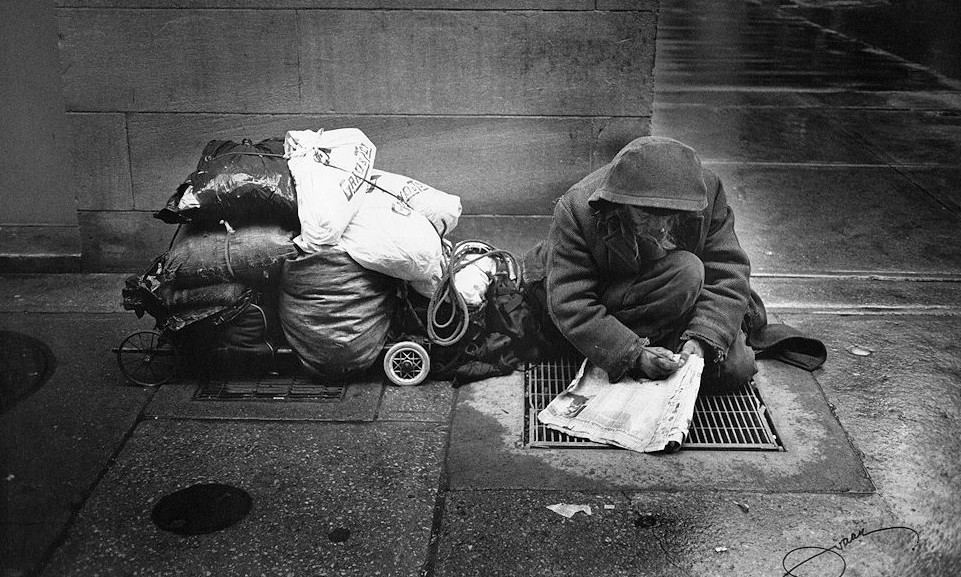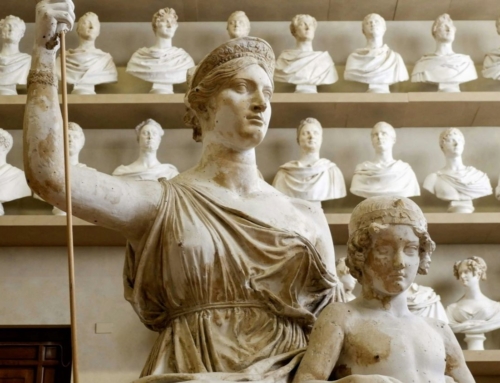I met a modern-day Job.
It happened last summer, at a men’s homeless shelter in Louisville, Kentucky. Let’s call him Joe.
Joe wasn’t like the other men living at the shelter. His homelessness wasn’t precipitated by drug abuse or alcoholism, as was the case with each of the other men I met there. As a result, Joe wasn’t suffering from withdrawal symptoms. His brown eyes were clear, focused. His voice steady. He was still a young man, with many days ahead of him.
But nonetheless, Joe was a beaten man. Only a couple years earlier he had been steady on his feet, gainfully employed, and seemingly content. It all began with a work injury, he told me. At first he was told the injury did not require surgery. Later on, another doctor said it did. The surgery was botched, and ultimately it needed to be redone. The physical rehabilitation seemed to make things worse. For years, Joe spent all his time—and all his savings—lying on his couch, staring at the television, trying to distract himself from the physical pain that would not cease. From the fear that he was never going to get better again. His company seemed to give him the corporate go-around, providing little assistance. His girlfriend eventually gave up on him, as did his friends, and then his landlord, when clerical errors with his disability pay meant he couldn’t pay his rent. That’s how he had ended up on the streets.
This is merely a twelve-sentence summary of his plight. You could sketch the same kind of brief summary for Job’s forty-chapter-long agony, but that would fail to do his long struggle any justice. So too with Joe.
Here’s the crucial distinction between Job and Joe, though—the difference that makes Joe’s woe even more agonizing: none of this suffering brought Joe any closer to God. He had never been a religious man, and this plight had failed to awaken any desire in him for the Divine. “People tell me I sound like Job,” Joe said to me, even before I could point out the connection myself. “That doesn’t help. At all.”
Job was a righteous man, and his trials tested his faith and trust in God; Joe had no faith to test in the first place. Nor had it blossomed under duress, as it does for some (see Salvifici Doloris, §26). Joe’s troubles had not made him want to turn to God. To Joe, the suffering and dispossession he had endured were meaningless, plain and simple.
This makes Joe’s the most devastating type of human suffering: suffering without merit. That is, suffering that resists its own potential to participate in Christ’s redemptive suffering. Suffering that does not produce endurance, character, or hope. Suffering, in other words, that refuses to be conformed into the shape of the cross. “Apart from the cross,” St. Rose of Lima reminds us, “there is no other ladder by which we may get to heaven.”
This predicament is the spiritual equivalent of a frequent flyer who continually opts against gaining any miles, or of a recipient of a gift card with a huge balance who never redeems it. For the modern-day Job, it is like the God-shaped hole in his life resides on one shoulder, and he persists in carrying his cross on the other shoulder, so that the cross-shaped piece never finds the God-shaped hole, completing the puzzle.
When we encounter a modern-day Job, what can we do for him? It may be tempting to harangue him with well-meaning sermonizing or moralizing, as Job’s friends do. But there is a better way. Just as Job prefigures Christ, so the modern-day Job really needs a modern-day Simon of Cyrene: someone who seizes a share of the burden. If we assume the role of Simon, God can use us as an instrument to reveal His presence to the modern-day Job, who is a Christ-like sufferer who knows not his Christ-like identity.
Part of the turmoil of the modern-day Job is his conviction, borne of past experience, that his cross cannot be shared. That no one would even consider helping bear its weight. When he encounters a modern-day Simon, however—who by his patient listening, compassion, and by his walking alongside the suffering soul, proves the sufferer’s unbelief to be false—then the modern-day Job can begin to doubt, in a grace-filled way, his other misconceptions. He can begin to become more like the original Job, the one who proclaims of the Lord: “I know that you can do all things” (Job 42:2).
✠
Image: Ivaan Kotulsky, Man doing crossword (CC BY 2.0), modified







